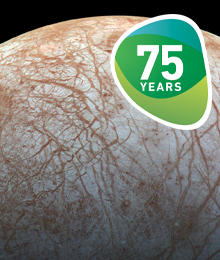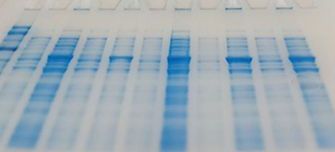Life on other planets

One of the biggest questions in astrobiology is how life originated on Earth. The building blocks of life and the organic molecules fundamental to life were present on Earth from the primitive Earth, where the basic unit of life, a cell, was formed. How this was done remains a key focus of research within astrobiology.
Many are under the impression that deep-sea vents hold the key to where life originated. Compounds found here could be synthesised at the bottom of our oceans. Despite it being dark, there are lots of organic molecules and micro-organisms where life has been found in our oceans. Researchers have focused on studying these life forms, some have even built models in the lab to simulate how these life forms have managed to survive extreme conditions, and which organic molecules can be synthesised.
Scientists have used this knowledge to take their research beyond our world, conducting missions to planets such as Mars. They have been looking to identify if the ‘Red Planet’ had oceans in the past, given that we know micro-organisms have the capacity to survive in water.
Why does understanding life on other planets matter to microbiology?
Research into life on other planets has led scientists attempting to understand how well microbes can grow in space, whether a pipette works in microgravity, and identifying new microbes including Solibacillus kalamii – a Gram-positive, rod-shaped, endospore-forming and aerobic bacterium that was found on the International Space Station. Some space missions have also led scientists to visit comets and asteroids in order to bring back samples to assess if and which organic molecules exist there.
Ongoing research into life on other planets is important to microbiology given that if resources of minerals become scarce, or difficult to access, asteroids or other planets could represent a huge, untapped resource with obvious economic and ecological benefits. Although no life form has been found on the Red Planet or on asteroids, the research continues.
Read more about why understanding life on other planets is important to our members and the wider microbiology community and access our additional resources.
-
Microbiologists working in this area
To celebrate our 75th anniversary in 2020, we invited microbiologists to nominate the discovery or event that best showcases why microbiology matters and helps us demonstrate the impact of microbiologists past, present and future. Learn more about the microbiologists who are working to understand life on other planets.
-
Resources and further reading
Learn about the investigation of space flight effects on Escherichia coli, the microbes from the Mariana Trench and the International Space Station, and life as a researcher at the UK Space Agency.
-
Exploring microbiology and genetics
Microbiology is a pioneering discipline. Many of the fundamental processes of biology were first elucidated in microbial systems – deciphering the genetic code. We will explore the impact of CRISPR-Cas, the world of phage, and restriction enzymes and the process of genetic modification.
Image credits:
iStock/nemchinowa
Danny Ward





